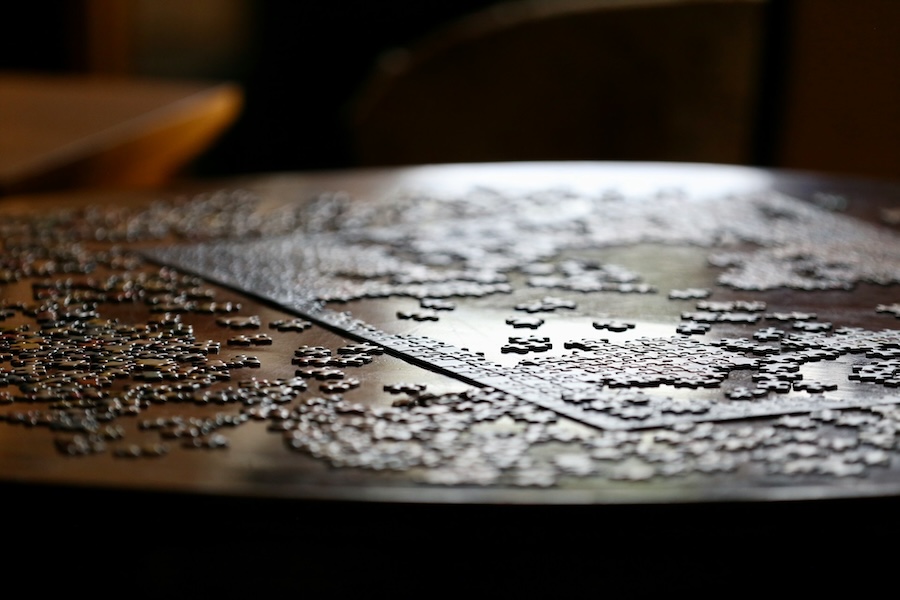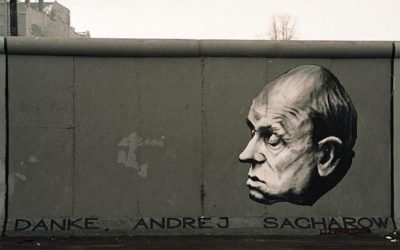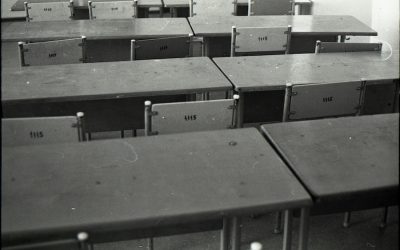What are anti-war Russians in academia saying?
Elena Pavlova
Photo: Discussions abroad have little effect on the processes within Russia itself, which is isolated on both sides. Photo by Juliane Liebermann on Unsplash
Hear the Voices of Those Who Have Stayed in Russia
Is it possible to express open protest against Russia’s activities in Ukraine and against the authorities in general?
Despite an obvious rise in political repression, the number of calls for such actions is not decreasing. Moreover, since there are no mass protests within the country, the alienation of Russian citizens abroad is growing. It is no wonder that the speeches of Ilya Yashin and Vladimir Kara-Murza, who emphasized the difference between the country’s political elites and ordinary citizens, caused a storm of negative comments.
However, there were also ideas that these demonstrations could be seen as a new opportunity to hear the voices of those Russians who are against the war but remain in Russia. In my opinion, this is an extremely important point.
As such, I decided to present a brief overview of my research dedicated to the civic activism of liberal Russian anti-war academia, which was conducted in Russia in late 2022 – early 2023.
About the Study
The research was jointly conducted by the Estonian Ministry of Foreign Affairs and the University of Tartu within the framework of the project “Limits and Opportunities of Civic Activism in Contemporary Russia” (2023-2024).
I conducted 21 semi-structured interviews with anti-war academics in Russia. The respondents included roughly equal numbers of men and women of different age groups from different cities in Russia.
- Among the participants were seven people at an early stage of their careers. All had some international connections but no name recognition and little (if any) administrative experience.
- The second group consists of responses from eleven mid-career scientists. These are professors or associate professors with connections both in Russia and internationally. These people have administrative experience, with some of them occupying mid-level management positions.
- I was only able to speak to three scientists who started their careers in the 1990s. These are professors who have held and hold various leadership positions; they are active and visible at the international level.
All my respondents were from large state universities: three from Moscow, eleven from St. Petersburg, and six from other regional centers.
I stopped interviewing when it became clear that I had reached a certain level of data saturation and was not getting any new information from the responses.
So what were their responses?
Guilt and Responsibility
Feelings of guilt. I will say at the outset that only one respondent spoke specifically about collective guilt.
“Yes,” she said, “there is a feeling of collective guilt, but I don’t convey it to others. It gnaws at me from inside. Maybe I should have gone to more protests. Maybe this last protest was precisely what was missing.”
All the others clearly distinguished between political elites and ordinary citizens and spoke of collective responsibility. For my respondents, the difference lay in the attitude toward the situation itself: guilt implies more of a personal emotional involvement, while awareness of collective responsibility is a rational rethinking of the state of affairs.
Responsibility was linked by many respondents both to personal inaction and to the initially failed strategy of the protests in which the respondents had participated.
“There was no clear strategy, and what was there did not meet the conditions. Narrow-minded liberalism reigned—walking around, ridiculing the government. And this was supposed to work?”
The respondents emphasized their responsibility as both experts and as citizens, but citizens who never supported such decisions and “did not sanction the authorities’ behavior.” It was noted both that all Russians will have to pay for this policy—and this is fair—and that “no one in Russia is ready for the collective consequences yet.”
Decentralization Strategy
What should be the country’s long-term development strategy?
First of all—decentralization. It has been made clear that complete disregard for the situation in the regions and insufficient attention to life outside Moscow and St. Petersburg is a serious mistake not only of the authorities, but also of the opposition.
“The Russian academic elite […] is hierarchical and capital-centric. It is interesting to see that there are anti-Moscow sentiments, but this is not extended to St. Petersburg. It is a topic that is close to colleagues from other regions, but even then it is more the issue of uneven distribution of resources, class struggle.”
Respondents also drew attention to the fact that it is not about “bringing ideas to the masses,” but about developing equal cooperation.
Of course, no one believes that Russia will collapse, but the idea of greater decentralization not only in the system of government, but also in the process of knowledge production, is extremely important.
“We don’t feel a connection with Russia, we exist locally, we don’t think in terms of the country,” one respondent emphasized.
Focus on Russia
Respondents indicated that the failure of the liberal intelligentsia also consisted in its excessive orientation toward the West.
This is not about refusing to cooperate with the West, isolation, or rejecting values that are now considered universal. The main idea is that the key audience for knowledge production should be Russian citizens. (This relates not to classes with students, but to scientific and popular science publications.)
“We lived only through feedback from the West. Moreover, we found contacts in Russia through Western recommendations. Only their recognition shows that you are worthwhile as a scientist.”
“We in the Russian Federation need to focus on ourselves. Get rid of this provincial complex. There must be an understanding that we need to publish in our native language. Textbooks, articles…In the end, our work is paid for by taxpayers, and they deserve to read the results in their own language. I was working on myself and my science, and it was not aimed at Russia.”
Let me emphasize once again: none of the respondents denied the importance of scientific cooperation with scientists from other countries, and none called for conscious academic isolation. The respondents emphasized that they now realize that they do not need to prove anything to the conventional West—neither their academic competence nor the correctness of their political positions.
Their concern is exclusively about focusing on Russia’s problems, reflecting a desire to find optimal models for overcoming the current situation and developing the country in the future.
We Need to Have a Conversation
Almost all respondents emphasized the importance of dialogue with the various communities that comprise the country’s population, regardless of their political course. Any social work should be oriented toward grassroots organizations, such as trade unions and student or volunteer movements.
“If there are volunteers, there is good faith in this war, which means we need contact, there must be an exchange of opinions.”
“Work in trade unions cannot be based on the division between ‘us and them.’ Help for Ukrainian refugees who came to Russia to escape military action is also important.”
The position of many Russian political activists and journalists living abroad and calling for military action against Russia and the dehumanization of the entire Russian population seems unacceptable.
“What do they even want? It’s the same old pattern—splitting the opposition, throwing mud. Like (names a famous Russian journalist who currently lives outside of Russia): “This Russia is broken, get a new one!” This is all about splitting and increasing the level of hatred. With all due respect to (name), this is the same old rhetoric of ‘there are Ukrainians and there are khokhols.’ He is the kind of ‘Russian’ who doesn’t try to understand, but simply calls for everything to be destroyed.”
What Are the Respondents Doing?
The civic activity of my respondents is manifested primarily within the framework of their sphere of activity: science and higher education. Some respondents actively conduct anti-war activities in the classroom (three of them have already been dismissed). Some post critical content on social networks.
But the main part of their efforts is more focused on long-term strategy. And here, too, the importance of dialogue and the development of critical thinking is emphasized.
“No one should be silenced, unless they are calling for something completely radical. All positions can and should be expressed.”
“It is important not to suppress students. We discuss everything, but in a maximally politically neutral manner. This is my ethical stance in general. Neutral-critical. Through the eyes of analysts. I always listen to everyone and support them. My professional position is at the foreground. This is academic discourse.”
I would like to emphasize that today, in the context of the total practice of denunciations, such a position also requires great courage.
“My task now is to teach young people. Those people who will change something, they will be from here…We need to develop civic education, targeted civic education. And the focus should be on patterns and concepts developed specifically for our society. So that we can act the day after tomorrow.”
* * *
Of course, the group of respondents was too small to draw serious conclusions or forecasts. I cannot give advice on what strategy of cooperation with Russian liberals may be successful and useful.
On the one hand, it is obvious that the only possibility is to maintain contacts between Russian and Western scientists.
On the other hand, I cannot imagine how such initiatives can be put forward in any academic organization in the EU or the US without severe consequences for the initiators. The normative approach, the simplification of the palette to black and white, which reigns today in relation to any studies of Russia, severely limits the possibility of any dialogue with Russians, even those who adhere to anti-war positions.
Outside of Russia, we may have different attitudes toward the statements presented above. We may discuss them, condemn them or support them, emphasize their ideological immaturity or admire the courage of individual citizens.
However, discussions abroad have little to do with the processes occurring within Russia, which is isolated on both sides, by both Kremlin policy and Western policy. And this needs to be understood.





0 Comments